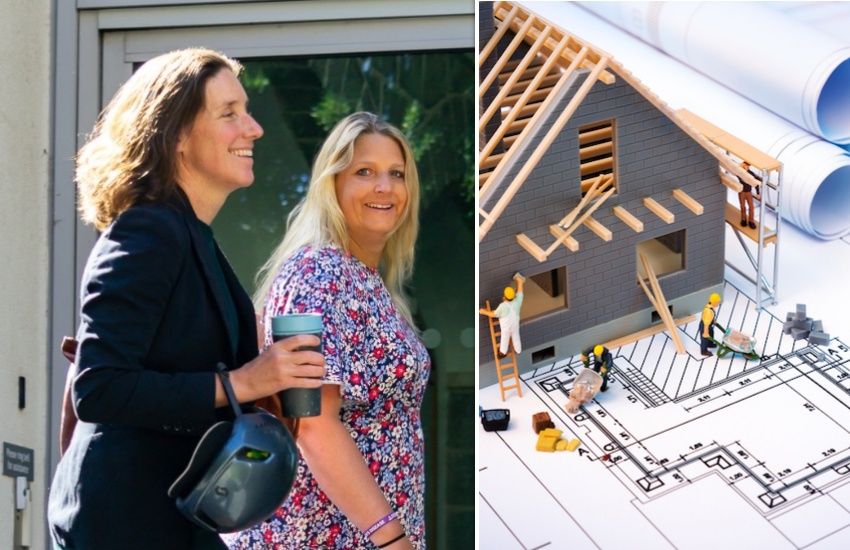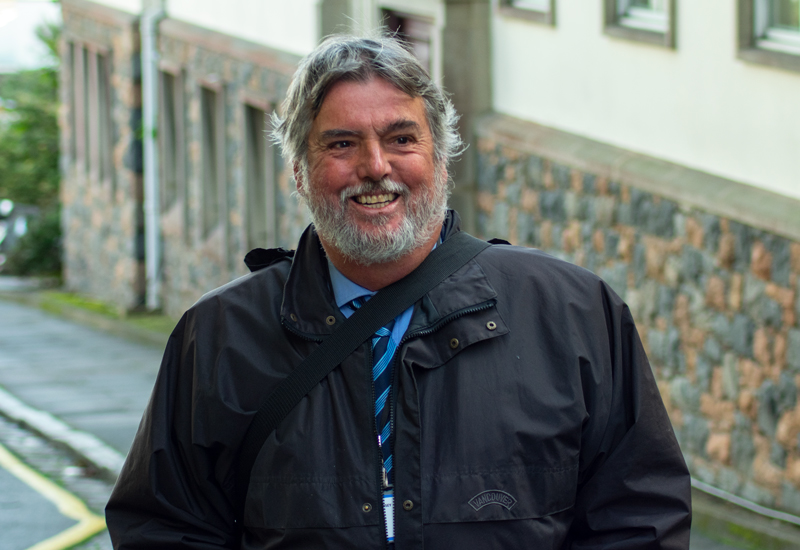


New sites for affordable housing may not be sufficient to meet the island's needs but are a welcome start, a politician has said, but another committee is critical of the decision to use new green fields to make up the shortfall over existing housing sites.
The Development & Planning authority want to designate six new sites specifically for affordable housing as part of its review into the Island Development Plan, which is now published and inviting public comments.
Deputy Peter Roffey, who has political responsibility for social housing, feared the DPA’s additional sites for housing may not go far enough to satisfy future demand, raising concerns with the level of immigration, and other sites which haven’t been developed for years.
“They say they put in a 25% buffer, but that would rely on firstly the current targets being met which are based on the housing needs indicator, which in turn was based on the net migration of 300, and we know we're seeing far more [net migration] than that now,” he told Express.
“Secondly, it means that every single site has to be developed in order for that that buffer to be there, and life is such that you can't always guarantee that every site is going to be developed.”
He said Employment & Social Security will be scrutinising the plans before writing a formal submission, which could suggest that additional sites are put forward for social housing under the special zoning category the DPA is seeking to introduce.
Meanwhile, Environment & Infrastructure, which has responsibility for housing generally, wrote a letter of comment to the DPA just days ago criticising the use of new greenfield sites.
“The Committee was concerned to note the proposed approach of allocating sites specifically for Affordable Housing,” President Deputy Lindsay de Sausmarez wrote. “Concerns were expressed that the calculation of available land may not be realistic, given the persistent under-delivery of completed housing units compared with the number of planning permissions.
“The proposals have chosen to allocate new greenfield sites adjacent to existing centre boundaries to make up the shortfall of land for Affordable Housing created by the negation of Policy GP11. The Committee is not comfortable with this proposed approach.”
She said the proposals do comply with land use policies, but plan to raise concerns with the independent planning inspector as part of the public inquiry later this year.

Pictured: Deputy Peter Roffey.
But Deputy Roffey did commend other housing moves made the DPA, and the focus it gave to affordable housing across the six sites in the absence of direct private market contributions to public stock.
“Personally, I haven't been had a chance to go out and look at them or examine them in depth but given that the States were not willing to sustain GP11, obviously it was important that the DPA came out with another means of delivering the affordable housing programme and the concept of having sites specifically zoned principally for affordable housing is something I welcome."
Allowing some private development on those sites could also see them be delivered faster, he said, noting that a mix of properties and tenure types is important to avoid creating two-tiered society.
“If any of the sites are particularly large, I don't really want another Les Genats or another Bouet,” he said. “I would prefer some kind of mixed tenure in large sites, although, if you're talking about 20 or 30 units and it's sitting in a row with private houses either side, I don't think that's so important.”
Deputy Roffey was strongly supportive of the plan to redraw the L’Aumone boundary around the Castel Hospital site, which is hoped to reduce barriers to developing housing there.
“I think housing would be an obvious candidate. I know in the past, the DPA have drawn up sketch plans for the use of the Castel Hospital for housing and it yielded really quite a large number of units. I think it's really, really sensible. It's a very central site in the island, and I think it would lend itself to all sorts of different housing.”
Private market demand for one- to two- bedroom houses, as well as larger family homes up to six bedrooms could be met on that site, he said.
Comments
Comments on this story express the views of the commentator only, not Bailiwick Publishing. We are unable to guarantee the accuracy of any of those comments.